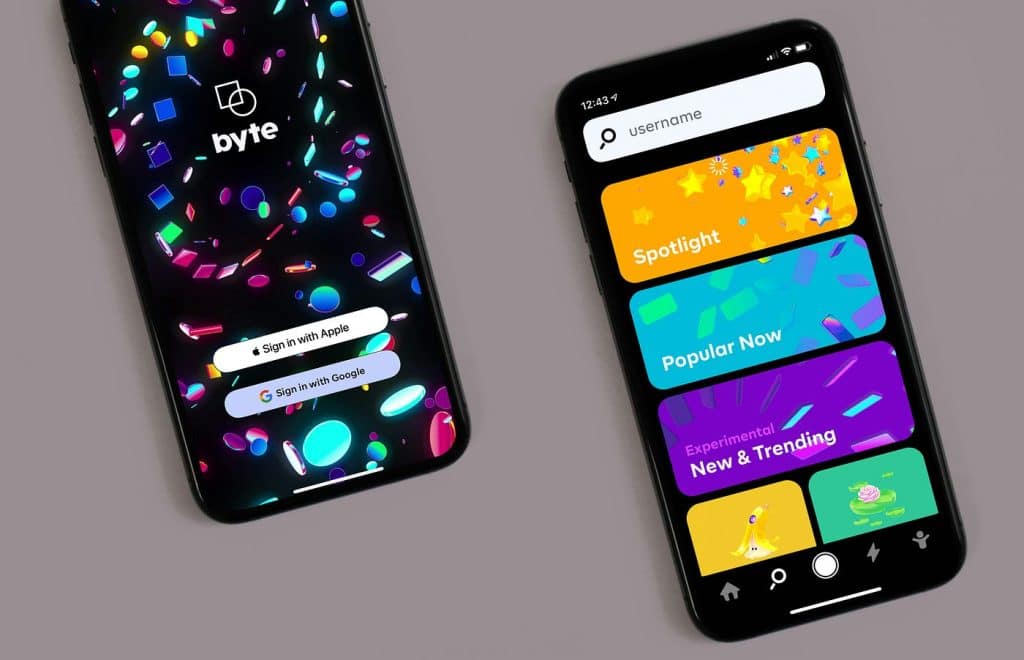In the ever-evolving landscape of mobile applications, the strategic deployment of personalization algorithms has become a critical focal point for developers and businesses alike. These algorithms, designed to curate tailored content based on individual preferences and behaviors, are fundamentally reshaping the user experience within apps. By offering users content that is uniquely relevant to them, personalization algorithms not only boost engagement and satisfaction but also redefine app usability standards. As we delve into the intricacies of how these algorithms are revolutionizing user experiences, the implications for app development and user interaction are both intriguing and transformative.
Exploring the Role of Personalization Algorithms in Enhancing Mobile User Experience
As mobile applications strive to meet user demands for personalized experiences, the role of personalization algorithms in enhancing mobile user experience becomes increasingly significant. By understanding the basics of personalization in-app user experience and recognizing the key benefits of tailored content for mobile users, developers can create more engaging and satisfying interactions. The integration of these algorithms not only improves user retention but also sets a new standard for app user experience, underscoring the importance of evolving strategies to remain competitive in the ever-changing app market.
Understanding the Basics of Personalization in App User Experience
Personalization algorithms play a crucial role in optimizing mobile user experience by tailoring content to individual preferences and behaviors. By analyzing user interactions and data, these algorithms enhance app user experience by offering personalized recommendations, content suggestions, and tailored features. For instance, user experience apps use personalization algorithms to provide customized news feeds, product recommendations, and targeted advertisements based on user preferences. These personalized experiences not only increase user engagement and satisfaction but also contribute to higher retention rates within apps. Moreover, personalization algorithms influence app store algorithms, as apps offering tailored content are more likely to rank higher and attract a larger user base, emphasizing the significance of personalized user experiences in today’s competitive app market.
Key Benefits of Tailored Content for Mobile Users
Personalization algorithms in mobile apps offer crucial advantages such as increased user engagement through personalized recommendations and improved user retention rates. By tailoring content to individual preferences, these algorithms create a more immersive and satisfying user experience, ultimately fostering stronger connections between users and the app. This tailored approach not only enhances user satisfaction but also plays a significant role in driving app success and competitiveness in the dynamic mobile market.

Increased User Engagement through Personalized Recommendations
Driven by advanced algorithms, tailored content recommendations in mobile applications have become instrumental in enhancing user engagement and satisfaction levels.
- Personalized recommendations drive user interaction.
- Tailored content increases user retention.
- Customized suggestions boost overall user satisfaction.
Improved User Retention Rates
The utilization of tailored content in mobile applications, facilitated by sophisticated algorithms, plays a crucial role in enhancing user retention rates and overall user experience.
| Benefits of Personalization Algorithms for User Retention Rates |
|---|
| 1. Increased Engagement |
| 2. Improved Customer Satisfaction |
| 3. Enhanced Loyalty |
| 4. Reduced Churn Rate |
| 5. Higher Lifetime Value |
The Impact of App Store Algorithms on App Visibility and User Acquisition
Understanding how app store algorithms function to personalize the user experience is crucial for app developers looking to enhance their app’s visibility and user acquisition. By optimizing your app to align with these algorithms, you can improve your app’s rankings within the store and increase its chances of being discovered by users. Implementing effective strategies tailored to app store algorithms can significantly impact your app’s success, making it essential to stay informed and adaptable in this dynamic digital landscape.
How App Store Algorithms Work to Personalize User Experience
Advanced algorithms within app stores play a crucial role in tailoring user experiences to enhance app visibility and drive user acquisition. These algorithms utilize various data points and metrics to personalize the user experience, ultimately influencing app success. Key aspects include:
- User Behavior Analysis: App store algorithms analyze how users interact with apps to recommend relevant content.
- Preference Matching: By understanding user preferences, algorithms suggest apps that align with individual interests.
- Personalized Recommendations: Tailored suggestions based on past interactions enhance user engagement and retention.
Through these personalized experiences, app store algorithms significantly impact app visibility, user engagement, and ultimately, the success of mobile applications.
Strategies for Optimizing Your App for Better Store Rankings
To enhance app visibility and drive user acquisition, implementing effective strategies to optimize your app for better store rankings is imperative in today’s competitive digital landscape. Start by conducting thorough keyword research to understand trending search terms and phrases within your app’s niche. Utilize these keywords strategically in your app title, description, and metadata to improve search visibility and attract relevant users.
Encourage positive user reviews and ratings, as these factors heavily influence store rankings. Regularly update your app with fresh content, features, and bug fixes to demonstrate ongoing commitment to user satisfaction and app improvement. Engaging with users through social media, email campaigns, and app communities can also boost visibility and foster user loyalty, ultimately contributing to improved store rankings.

Designing Personalization Features: Best Practices in User Experience Apps
In the realm of user experience apps, incorporating user feedback to refine personalization strategies is paramount for enhancing app engagement and satisfaction. Essential tools for developing personalized app features play a crucial role in creating tailored experiences that resonate with users and drive retention. By focusing on these best practices, developers can craft user-centric experiences that set their apps apart in a competitive market.
Incorporating User Feedback to Refine Personalization Strategies
Personalization strategies in user experience apps can be refined effectively by incorporating user feedback as a fundamental element in the design process. User feedback provides valuable insights that can guide the enhancement of personalization features, ensuring that they align closely with user preferences and expectations. By actively engaging with user feedback, app developers can iteratively improve the personalization algorithms to deliver a more tailored and satisfying user experience.
Benefits of Incorporating User Feedback:
- Offers valuable insights into user preferences and behaviors.
- Enhances the relevance and accuracy of personalized content.
- Fosters a sense of user involvement and ownership in the app development process.
Essential Tools for Developing Personalized App Features
Upon receiving and implementing user feedback to refine personalization strategies in user experience apps, the utilization of specific tools becomes imperative for developing personalized app features effectively. These tools provide developers with the necessary resources to collect, analyze, and implement user data efficiently, ultimately enhancing the overall user experience. Below is a table showcasing three essential tools for developing personalized app features:
| Tool | Description | Benefits |
|---|---|---|
| User Analytics | Tracks user behavior and preferences | Personalized content delivery |
| A/B Testing | Compares different versions to optimize features | Improved user engagement |
| Machine Learning | Predicts user preferences based on data patterns | Enhanced customization options |
Analyzing User Behavior: Key to Customizing Mobile User Experience
Understanding user behavior is paramount in tailoring mobile user experiences. Techniques for tracking and analyzing user interactions provide valuable insights that can be leveraged to enhance the overall user experience in mobile apps. By utilizing data effectively, developers can create personalized experiences that resonate with users and drive app engagement.
Techniques for Tracking and Analyzing User Interactions
Utilizing advanced tracking and analytical methodologies is essential for tailoring mobile user experiences through the thorough examination of user interactions. By employing sophisticated techniques for tracking and analyzing user behavior, developers can gain valuable insights to enhance app personalization and user engagement. Key methods include:
- User Journey Mapping: Visualizing the entire user experience from start to finish helps identify pain points and opportunities for improvement.
- Behavioral Analysis: Studying how users interact with the app provides crucial data for optimizing features and content.
- A/B Testing: Experimenting with different versions of the app allows for data-driven decisions on what resonates best with users.
Utilizing Data to Enhance User Experience in Mobile Apps
Analyzing user behavior serves as the cornerstone for customizing the mobile user experience in apps, driving the strategic utilization of data to enhance overall user satisfaction and engagement. By closely examining how users interact with mobile applications, developers can gain valuable insights into preferences, habits, and pain points. This data enables the implementation of personalized features, content recommendations, and targeted notifications that cater to individual user needs.
Through the continuous analysis of user behavior patterns, app creators can refine their offerings, streamline user journeys, and optimize the overall app experience. Ultimately, leveraging data to tailor the mobile user experience not only boosts user engagement but also fosters a stronger connection between users and the app, leading to increased retention and loyalty.
Future Trends in Personalization Algorithms and Their Impact on User Experience
As technology continues to advance, emerging trends are reshaping the landscape of personalized user experiences within mobile applications. Predictions about the future of personalization algorithms in mobile apps over the next decade suggest a shift towards even more tailored and intuitive user interactions. These advancements are set to revolutionize how users engage with apps, highlighting the crucial role that personalization algorithms will play in shaping the future of user experience.
Emerging Technologies Shaping Personalized User Experiences
The advancement of emerging technologies is rapidly shaping personalized user experiences, revolutionizing the future trends in personalization algorithms and their profound impact on user experience. As innovation continues to drive the evolution of personalization in apps, several key technologies are emerging to further enhance user interactions and satisfaction:
- Artificial Intelligence (AI) and Machine Learning (ML) algorithms are enabling more accurate predictions and recommendations.
- Augmented Reality (AR) and Virtual Reality (VR) technologies are creating immersive and interactive user experiences.
- Internet of Things (IoT) integration is allowing for seamless connectivity and personalized automation within apps.
Predictions for Personalization in Mobile Apps Over the Next Decade
Predictions for the evolution of personalization algorithms in mobile apps over the next decade point towards a significant shift in user experience customization strategies. With advancements in artificial intelligence and machine learning, these algorithms are expected to become even more adept at understanding user preferences, behaviors, and context. Personalization will extend beyond content recommendations to encompass hyper-personalized user interfaces, predictive features, and proactive assistance.
The future of personalization in mobile apps will focus on creating seamless, anticipatory experiences that not only meet but exceed user expectations. As privacy concerns grow, a delicate balance will need to be struck between personalization and data protection. Overall, the next decade will witness a profound transformation in how mobile apps tailor experiences to individual users, shaping a new era of highly personalized and engaging app interactions.
Challenges and Solutions in Implementing Personalization Algorithms
Implementing personalization algorithms in apps poses unique technical hurdles that require innovative solutions to ensure seamless integration and optimal performance. One of the key challenges developers face is:
- Data Privacy Concerns: Balancing the need for personalized content with the protection of user data privacy is a delicate task. Striking the right balance between collecting enough data for effective personalization without compromising user privacy requires robust encryption techniques and strict adherence to data protection regulations.
- Scalability: As user bases grow and content libraries expand, scalability becomes a critical issue. Ensuring that personalization algorithms can handle the increasing volume of data without sacrificing speed or accuracy demands efficient coding practices, cloud computing resources, and periodic performance optimizations.
- Algorithm Bias: Personalization algorithms can inadvertently reinforce biases present in the training data, leading to skewed recommendations and limited diversity in content presentation. Mitigating algorithm bias involves continuous monitoring, diverse dataset curation, and the implementation of fairness-aware algorithms to promote inclusive and unbiased user experiences.

User Experience Examples: From Theory to Practice
As we transition from theory to practice, examining lessons learned from top-performing user experience apps becomes paramount. These examples offer valuable insights into the successful application of personalization algorithms to enhance user satisfaction and engagement. By studying how leading apps optimize user experiences through tailored content delivery, developers gain practical knowledge to refine their own strategies and stay competitive in the dynamic app market.
Lessons Learned from Top-Performing User Experience Apps
Several top-performing user experience apps serve as invaluable case studies in understanding the impact of personalization algorithms on enhancing user engagement and satisfaction.
- Spotify: Utilizes advanced algorithms to curate personalized playlists based on user listening habits and preferences.
- Netflix: Recommends tailored content by analyzing viewing history and user ratings, enhancing the overall streaming experience.
- Amazon: Offers personalized product recommendations by studying user behavior and purchase history, increasing customer satisfaction and retention.
These apps demonstrate how effectively implementing personalization algorithms can not only improve user experience but also drive user loyalty and long-term success in the competitive app market.
Optimizing Mobile User Experience through AI and Machine Learning
As the demand for tailored user experiences continues to rise, AI technologies are revolutionizing app personalization. By leveraging machine learning techniques, apps can deliver smarter content curation that adapts to individual preferences. This transformative approach not only enhances user engagement but also sets a new standard for mobile app interactions.
How AI Transforms App User Experience Through Personalization
Personalization algorithms powered by artificial intelligence and machine learning are revolutionizing the mobile app user experience by tailoring content to individual preferences and behaviors. These advanced technologies enable apps to deliver personalized experiences that enhance user engagement and satisfaction. Key benefits of AI-driven personalization include:
- Enhanced User Engagement: By providing tailored content, users are more likely to interact with the app regularly.
- Improved Customer Satisfaction: Personalized experiences cater to individual preferences, leading to higher levels of user satisfaction.
- Increased User Retention: Customized content keeps users coming back, reducing churn rates and improving long-term user retention.
Machine Learning Techniques for Smarter Content Curation
Utilizing advanced machine learning techniques, mobile applications can curate smarter content tailored to individual user preferences, thereby optimizing the overall user experience through the integration of AI technologies. Machine learning enables apps to analyze vast amounts of user data, such as past interactions, content preferences, and behavior patterns, to predict what content will be most relevant and engaging for each user.
By leveraging algorithms that continuously learn and adapt, apps can deliver personalized recommendations, notifications, and content suggestions in real-time, creating a more dynamic and user-centric experience. Through the application of machine learning in content curation, mobile apps can elevate user satisfaction, drive higher engagement levels, and foster long-term user loyalty by providing a hyper-personalized experience that resonates with each individual user.
The Role of Visual Design in Personalized User Experiences
Visual design plays a crucial role in shaping personalized user experiences within mobile applications by enhancing engagement and creating a seamless interface. When it comes to personalized user experiences, visual design serves as a powerful tool to captivate users and make interactions more meaningful. Here are three key ways in which visual design contributes to personalized user experiences:
- Customized Interfaces: Visual design allows for the customization of interfaces based on user preferences and behavior. By adapting colors, layouts, and graphics to align with individual user profiles, apps can create a more tailored and engaging experience.
- Emotional Connection: Through the use of visually appealing elements such as images, animations, and typography, apps can evoke emotions and connect with users on a deeper level. This emotional resonance enhances the overall user experience and fosters loyalty.
- Consistent Branding: Visual design plays a crucial role in maintaining consistent branding across personalized user experiences. By incorporating brand colors, logos, and design elements, apps can reinforce brand identity and strengthen user recognition.
Measuring the Success of Personalization in Mobile Apps
The assessment of personalized user experiences within mobile applications is essential for determining the effectiveness of customization algorithms. Measuring the success of personalization in mobile apps involves analyzing various key performance indicators (KPIs) to gauge the impact of tailored content on user engagement and satisfaction. One crucial metric is user retention rate, which reflects the ability of personalized experiences to keep users coming back to the app. A high retention rate signifies that the personalization strategies are resonating with users and enhancing their overall experience.
Another important KPI is conversion rate, which measures the percentage of users who take a desired action, such as making a purchase or subscribing to a service, due to personalized recommendations or content. A rise in conversion rate indicates that the personalization algorithms are effectively influencing user behavior and driving desired outcomes. Additionally, tracking user feedback and sentiment through ratings, reviews, and surveys provides valuable insights into how users perceive and respond to personalized experiences.
Comprehensive Software Development Solutions
Unlock the potential of digital transformation with our bespoke software development services, engineered to foster innovation, maximize efficiency, and catalyze business growth.
Conclusion
In conclusion, personalization algorithms have become integral in reshaping mobile user experiences by delivering tailored content based on individual preferences and behaviors. The impact of these algorithms extends to app store visibility, user acquisition, and overall user satisfaction. As developers continue to refine their strategies and incorporate AI and machine learning technologies, the future of personalized user experiences in apps looks promising. The success of personalized content in mobile applications can be measured through user engagement, retention rates, and overall app performance.
How Do Personalization Algorithms Impact App Visibility and User Acquisition in the App Store?
Personalization algorithms significantly influence app visibility and user acquisition in app stores. By analyzing user data and behavior, these algorithms enhance relevance, engagement, and user satisfaction, ultimately driving increased app downloads and retention rates.
What Are Some Best Practices in Designing Personalization Features for User Experience Apps?
When designing personalization features for user experience apps, prioritize understanding user preferences, behaviors, and interactions. Implement sophisticated algorithms to analyze data and deliver tailored content that enhances engagement and satisfaction, ultimately driving user retention and app success.
How Does Analyzing User Behavior Play a Key Role in Customizing Mobile User Experience Through Personalization Algorithms?
Analyzing user behavior is pivotal in customizing mobile user experience through personalization algorithms. By studying preferences and interactions, algorithms deliver tailored content that enhances engagement, satisfaction, and retention, setting a new standard in app user experience.
What Are Some Future Trends in Personalization Algorithms and How Will They Impact User Experience in Mobile Apps?
Emerging trends in personalization algorithms include AI-driven recommendations, real-time user feedback integration, and hyper-personalized experiences. These advancements will elevate user engagement, boost retention rates, and redefine app user experience, setting new benchmarks for mobile applications.


